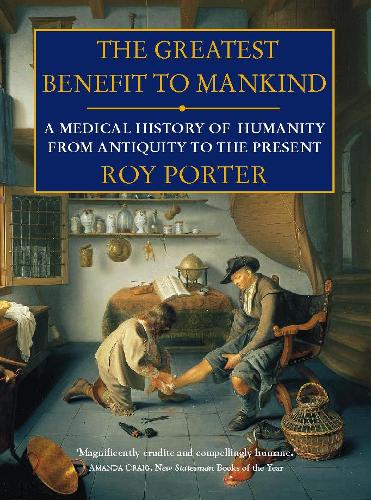
The Greatest Benefit to Mankind: A Medical History of Humanity
(Paperback)
Publishing Details
The Greatest Benefit to Mankind: A Medical History of Humanity
By (Author) Roy Porter
HarperCollins Publishers
Fontana Press
31st March 1999
United Kingdom
Classifications
General
Non Fiction
610.9
Physical Properties
Paperback
848
Width 153mm, Height 234mm, Spine 56mm
950g
Description
Medicine advances ever faster, and with it not just a capacity to overcome sickness, but to transform the very nature of life. Starting in ancient times, this text charts how this health revolution came about and how life for human beings in the West has ceased, in Hobbes' memorable phrase, to be "nasty, brutish and short." Porter plots the growth of medical specialisms - pharmacology, physiology, anatomy, neurology, bacteriology - and the institutions of medicine - the hospital and asylum - to show how medical advances have often created as many problems as they have solved. The book also shows how the ancient Egyptians treated incipient baldness with a mixture of hippopotamus, lion, crocodile, goose, snake and ibex fat; how a mystery epidemic devastated ancient Athens and brought to an end the domination of that great city; and how lemons did as much as Nelson to defeat Napolean.
Reviews
'A monumental work... magnificent.' KENAN MALIK, Independent on Sunday 'Only the unique artistry of Roy Porter could have created this panoramic and perfectly magnificent intellectual history of medicine. It makes no difference whether one reads it for its wisdom, insight, inimitable perspective, or simply for its plenitude of information -- this is the book that delivers it all.' SHERWIN B. NULAND
Author Bio
Roy Porter is Professor of the Social History of Medicine at the Wellcome Institute for the History of Science. He is the editor of the Fontana History of Science series, and the author of over sixty-five books, including, most recently, the acclaimed bestseller, London: A Social History. His book on the history of madness in England, Mind-Forg'd Manacles, won the Leo Gershoy Prize.
